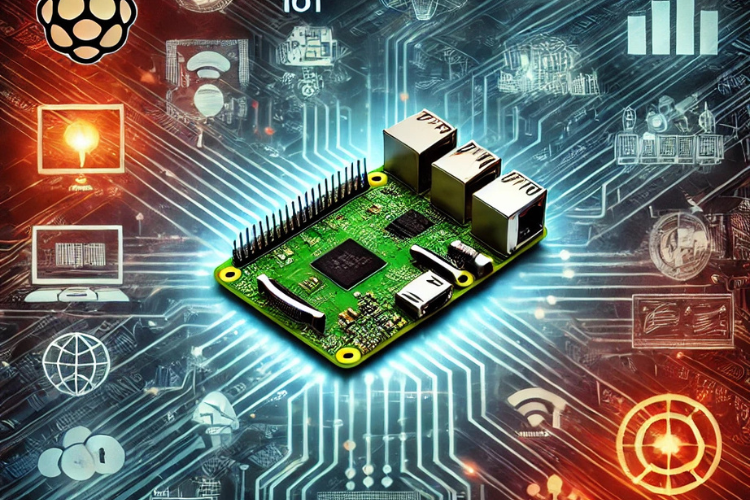Introduction
Technology enthusiasts are always searching for innovative ways to enhance performance and efficiency. One such exciting combination is running DeekSeek R1 on a Raspberry Pi 5. This setup unlocks new possibilities for automation, monitoring, and data analysis. But how well does DeekSeek R1 perform on the latest Raspberry Pi? In this guide, we’ll explore everything from installation to real-world applications.
What is DeekSeek R1?
DeekSeek R1 is a powerful tool for data processing and real-time monitoring. It provides users with a flexible platform to collect, analyze, and visualize data efficiently. Designed for lightweight environments, it works seamlessly with single-board computers like the Raspberry Pi.
Key Features of DeekSeek R1
- Real-time Data Monitoring – Tracks and analyzes data with minimal latency.
- Lightweight and Efficient – Requires low system resources.
- Customizable Dashboards – Offers user-friendly visualization tools.
- Easy Integration – Works with multiple hardware and software platforms.
- Open-Source Community Support – Backed by a strong developer network.
- Scalability – Can be adapted for different applications, from home automation to industrial use.
- Enhanced Security – Provides encryption and secure data transmission for sensitive applications.
- Energy Efficient – Optimized power consumption for longer operational hours.
- Extensive API Support – Integrates easily with third-party applications and cloud platforms.
Raspberry Pi 5 Overview
The Raspberry Pi 5 is the latest iteration of the popular single-board computer. It comes with significant improvements in processing power, memory, and I/O capabilities.
Key Upgrades in Raspberry Pi 5
- More Powerful CPU – A quad-core ARM Cortex-A76 processor for better performance.
- Increased RAM Options – Supports up to 8GB for smoother multitasking.
- Enhanced GPU – Delivers better graphics and media processing.
- Faster I/O Performance – Improved USB and PCIe interfaces for high-speed connections.
- Better Power Efficiency – Optimized energy consumption for longer operation.
- Expanded Connectivity – Improved support for external accessories and networking features.
- Hardware Accelerated AI Processing – Ideal for running lightweight machine learning models.
- Enhanced Thermal Management – Improved heat dissipation for extended use.
- Built-in RTC (Real-Time Clock) – Enables better time synchronization in IoT applications.
These upgrades make the Raspberry Pi 5 an ideal choice for running DeekSeek R1.
Setting Up DeekSeek R1 on Raspberry Pi 5
Installing DeekSeek R1 on a Raspberry Pi 5 is straightforward. Follow these steps to set up your system smoothly.
Prerequisites
- Raspberry Pi 5 with a power supply.
- MicroSD card (32GB or higher).
- Raspberry Pi OS (latest version recommended).
- Internet connection.
- A cooling system (recommended for high-performance tasks).
- Optional: External SSD for enhanced storage performance.
Installation Steps
- Update Raspberry Pi OS
- Open a terminal and run:
sudo apt update && sudo apt upgrade -y
- Open a terminal and run:
- Install Required Dependencies
- Run the following command:
sudo apt install -y python3 pip git
- Run the following command:
- Download DeekSeek R1
- Clone the repository:
git clone https://github.com/deekseek-r1/repo.git - Navigate to the directory:
cd repo
- Clone the repository:
- Install DeekSeek R1
- Run the installation script:
sudo bash install.sh
- Run the installation script:
- Start DeekSeek R1
- Execute:
python3 deekseek_r1.py - Access the dashboard from your browser at http://raspberrypi.local:5000.
- Execute:
Performance & Benchmarks
Running DeekSeek R1 on Raspberry Pi 5 shows noticeable improvements over previous models.
Performance Tests
- CPU Load – The Raspberry Pi 5 handles DeekSeek R1 efficiently, maintaining low CPU usage.
- RAM Usage – With 8GB RAM, multitasking is smooth, even with multiple processes.
- Data Processing Speed – Faster response times compared to Raspberry Pi 4.
- Network Performance – Improved WiFi and Ethernet speeds ensure stable connectivity.
- Storage Performance – Faster read/write speeds enhance data management efficiency.
- Power Consumption – Optimized usage reduces heat generation and extends device longevity.
Use Cases & Applications
Deploying DeekSeek R1 on Raspberry Pi 5 opens a range of possibilities across industries.

Real-World Applications
- Home Automation – Monitor temperature, humidity, and security systems.
- Industrial Monitoring – Track machine performance in real time.
- IoT Data Collection – Gather and analyze data from smart devices.
- Weather Stations – Run environmental monitoring systems.
- Network Security – Monitor traffic and detect anomalies.
- Smart Agriculture – Optimize irrigation and soil monitoring.
- AI & Machine Learning – Run lightweight AI models for predictive analytics.
- Healthcare Monitoring – Track patient vitals in remote healthcare setups.
- Environmental Sensing – Monitor air quality, pollution, and CO2 levels.
Troubleshooting & Common Issues
Even with a smooth setup, you might encounter some challenges. Here are common issues and solutions.
Problem: Installation Fails
Solution: Ensure your Raspberry Pi OS is updated and all dependencies are installed.
Problem: High CPU Usage
Solution: Optimize performance by running DeekSeek R1 in lightweight mode.
Problem: Connection Issues
Solution: Check firewall settings and ensure the service is running using:
sudo systemctl status deekseek
Problem: Dashboard Not Loading
Solution: Restart the service and check the network connection.
Problem: Slow Performance
Solution: Ensure you are using a high-speed SD card and consider enabling swap memory.
Conclusion
Running DeekSeek R1 on Raspberry Pi 5 is a powerful combination. The improved hardware of Raspberry Pi 5 enhances the efficiency of DeekSeek R1, making it ideal for automation, monitoring, and data processing. Whether you’re a hobbyist or a professional, this setup offers endless possibilities.
As technology advances, platforms like DeekSeek R1 continue to evolve, enabling new ways to optimize data-driven tasks. The open-source community, including platforms like StartupHakk, plays a crucial role in driving innovation. Try this setup today and unlock the full potential of real-time data analysis!




